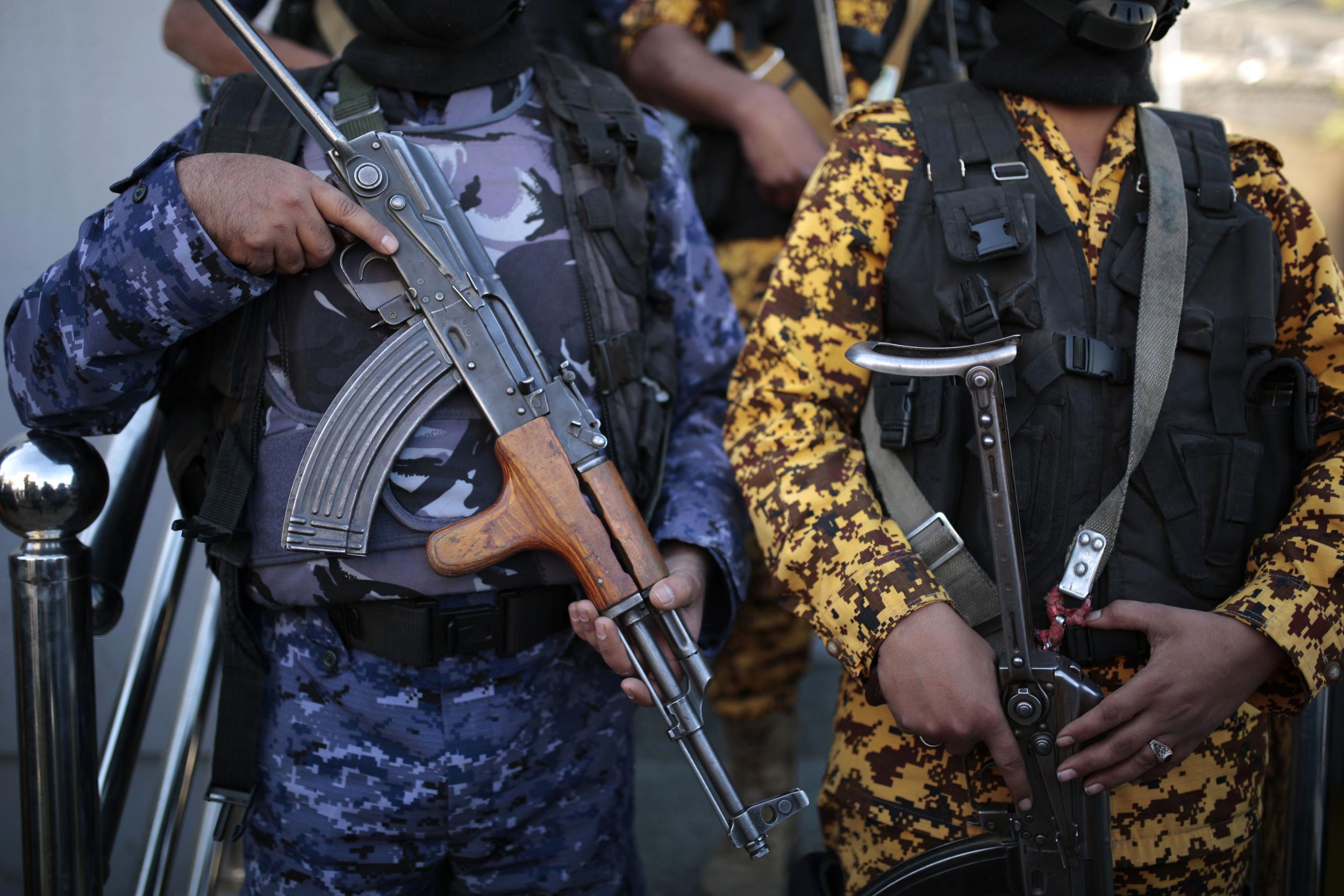Yemen talks: UN proposes rebel withdrawal from Hodeidah port and shared control
The UN hopes to halt fighting around the Red City, which is a lifeline to Yemen, with a draft proposal which would pave the way for a more "detailed" round of negotiations next year

Your support helps us to tell the story
From reproductive rights to climate change to Big Tech, The Independent is on the ground when the story is developing. Whether it's investigating the financials of Elon Musk's pro-Trump PAC or producing our latest documentary, 'The A Word', which shines a light on the American women fighting for reproductive rights, we know how important it is to parse out the facts from the messaging.
At such a critical moment in US history, we need reporters on the ground. Your donation allows us to keep sending journalists to speak to both sides of the story.
The Independent is trusted by Americans across the entire political spectrum. And unlike many other quality news outlets, we choose not to lock Americans out of our reporting and analysis with paywalls. We believe quality journalism should be available to everyone, paid for by those who can afford it.
Your support makes all the difference.The United Nations has asked Yemen's Houthi rebels to withdraw from Hodeidah as part of a ceasefire deal that would give joint oversight to the strategic port city, protecting a lifeline for millions in the war-torn country.
The proposal, which was circulated on the fifth day of peace talks in Sweden, is part of a slew of measures the UN hopes to push through to end the war that has sparked the world’s worst humanitarian crisis.
In the draft document, the Saudi-led military coalition fighting the Houthis would cease an offensive on the port in exchange for a rebel withdrawal.
The area would then be put under the control of a joint local committee and supervised by the UN.
The document, seen by several news wires, did not propose the deployment of UN peacekeeping troops. On Monday, Yemen’s recognised government rejected long term presence of UN troops in the city itself.
There was no word on whether the document had been accepted by both sides, although the government was expected to issue a formal response soon.
A similar draft document was circulated which outlined a gradual drawdown of the conflict in the central and flashpoint city of Taiz.
UN envoy to Yemen, Martin Griffiths, said he hoped for approval on agreements within just a few days, marking a major step forward in the talks, which are the first since 2016.
He said the two sides are dealing with the "de-escalation" of fighting around the contested cities of Taiz and the Red Sea port of Hodeidah.
"If we are able to achieve progress on these two places, I think we will have done a great service to Yemen," he said.
"I hope we will get agreements in the next couple of days on a range of issues."
Mr Griffiths had earlier urged that Hodeidah be “taken out of the war”.
A previous deal hangs on a massive prisoner swap between both sides: a confidence-boosting measure agreed as both sides met at a castle north of the Swedish capital Stockholm.
Yemen has been torn apart by ruinous war since 2015 when Saudi Arabia and its Gulf allies launched a bombing campaign to reinstate recognised president Abedrabbo Mansour Hadi.
Mr Hadi had been forced from office by a takeover by the Iran-backed Houthi rebel group, who still control much of the north of the country.
Over 22 million people, nearly two-thirds of the population, now rely on aid to survive according to the UN, while as many as 14 million could starve as the country teeters on the brink of famine.
The latest battle has centred around the strategic port of Hodeidah, through which nearly 80 per cent of the country’s food and medical supplies arrive.
Residents of Hodeidah told The Independent there was a tense calm in the Red Sea city on Monday, disturbed only by occasional shelling.
In some areas, food prices have soared by 400 per cent meaning many cannot afford to eat and are starving to death.
“We need a peace deal now to stop this crisis,” Ebrahim Jabari a resident of the port city told The Independent.
“But we have little hope, we fear this is only another round that will end only for another chapter of war to begin,” he added.
We fear this is only another round that will end only for another chapter of war to begin
Back in Sweden, Mr Griffiths said he hoped to draw up a detailed plan for further talks which will be held next year, and where security arrangements could be finalised.
Ali Hussein Ashal, part of the government delegation, said that any ideas put forward were still “preliminary” for now.
“As always, in any round of talks, ideas are brought forward, and they could be preliminary, they could have just been thrown out on the table," he added.
Houthi representative Salim al-Moughaless meanwhile, said the rebels would only consider a withdrawal from any city as part of a full political solution to the conflict.
"The discussion is long and ongoing,” he added.
Join our commenting forum
Join thought-provoking conversations, follow other Independent readers and see their replies
Comments